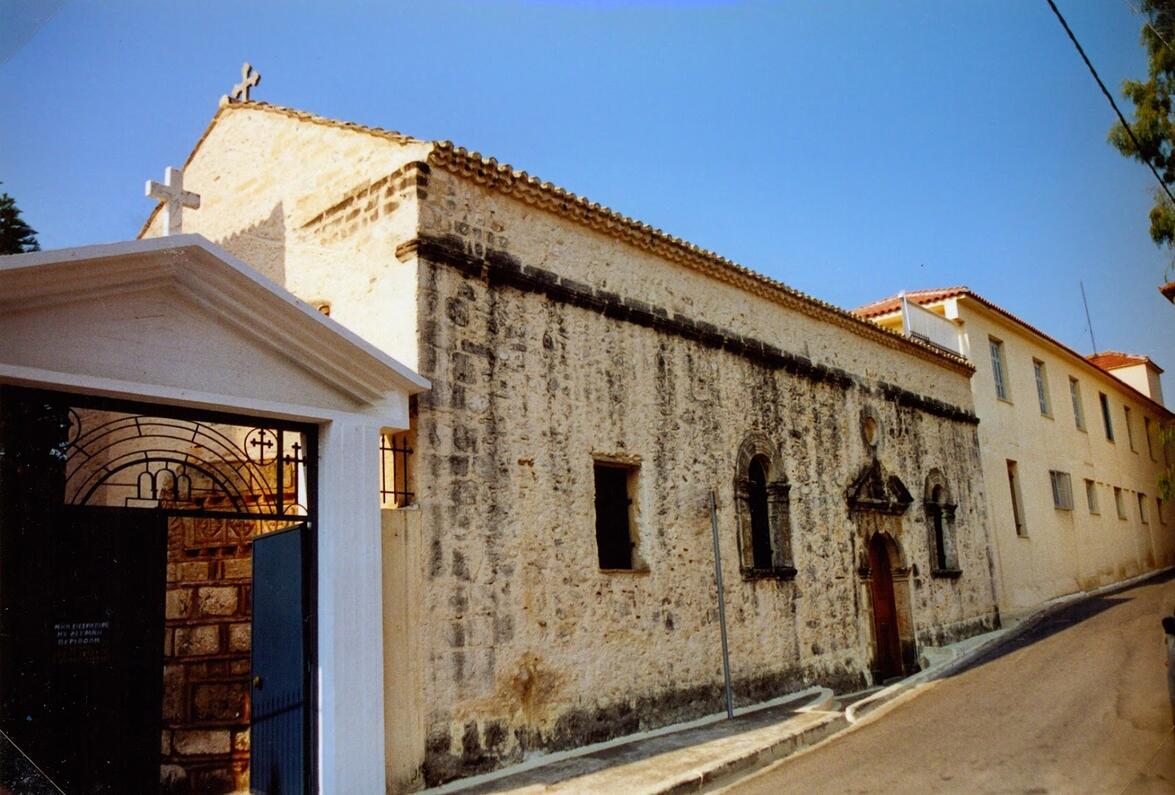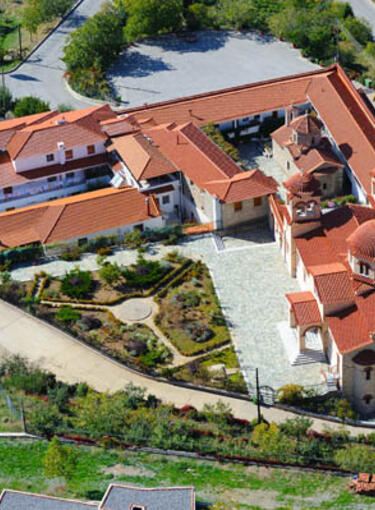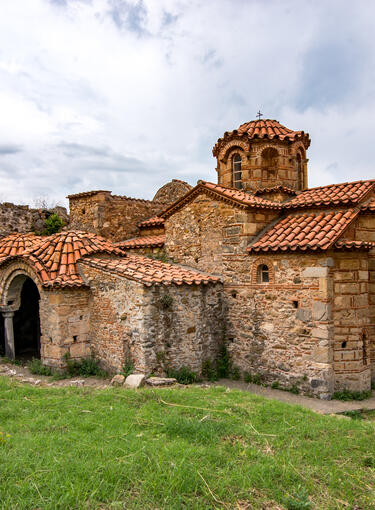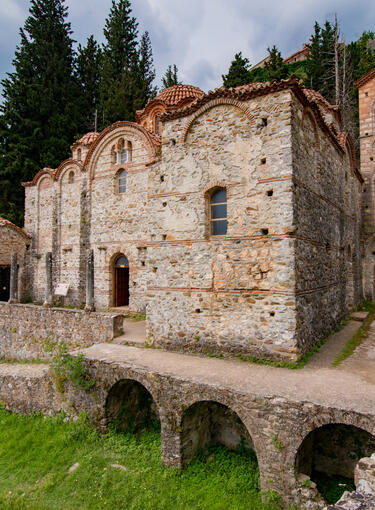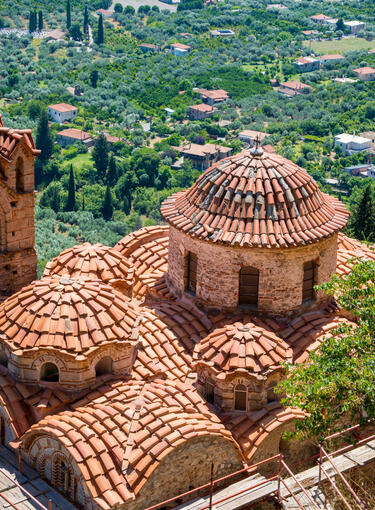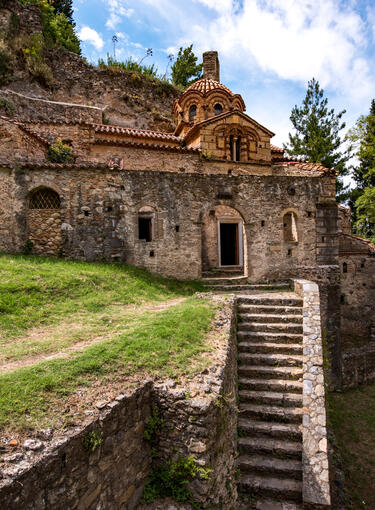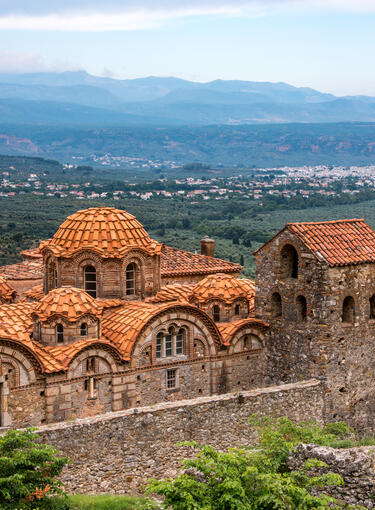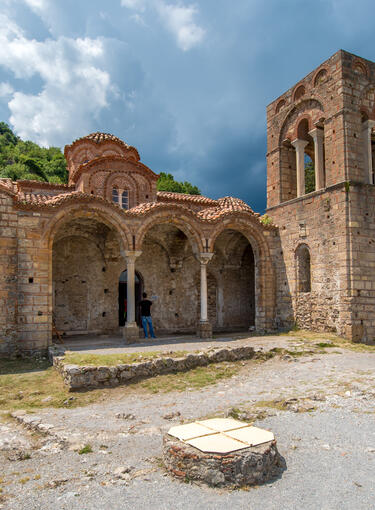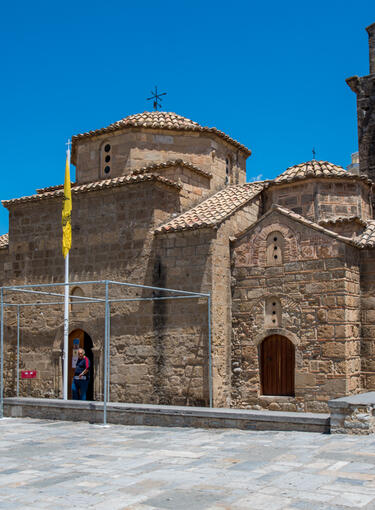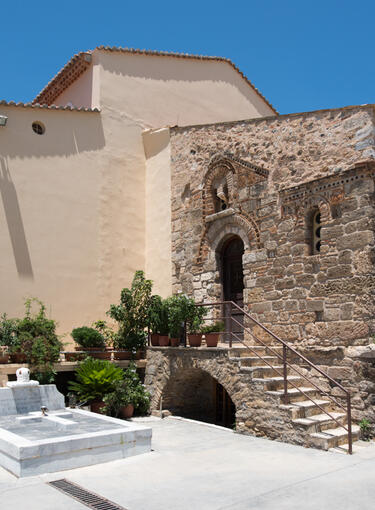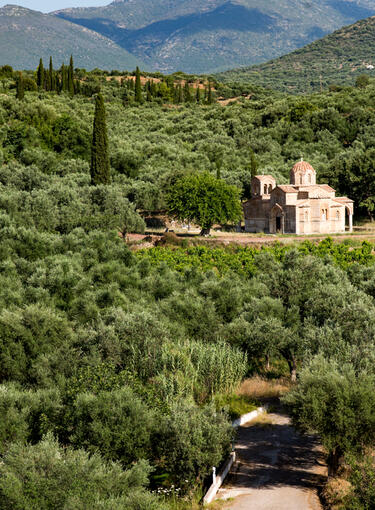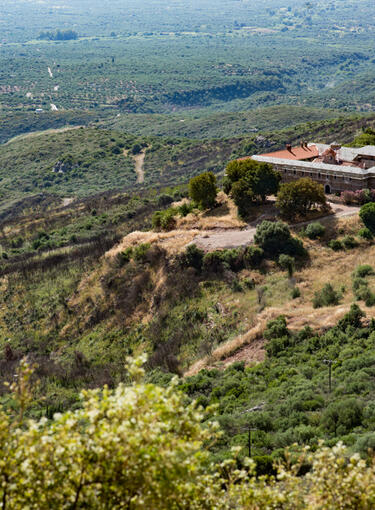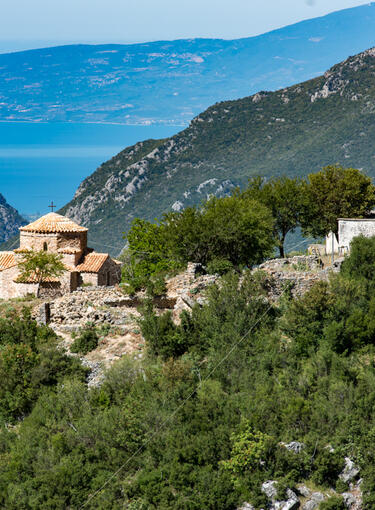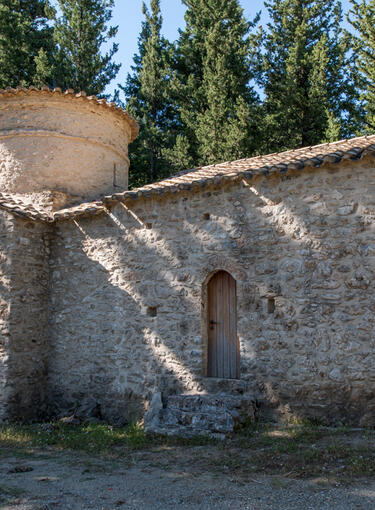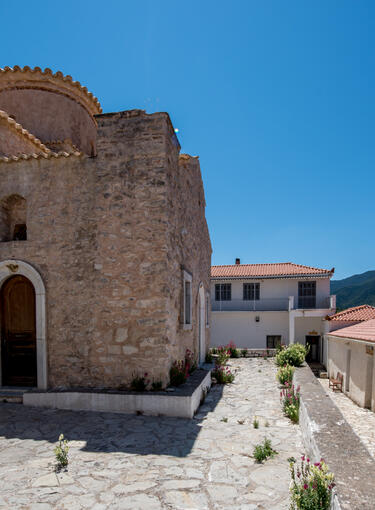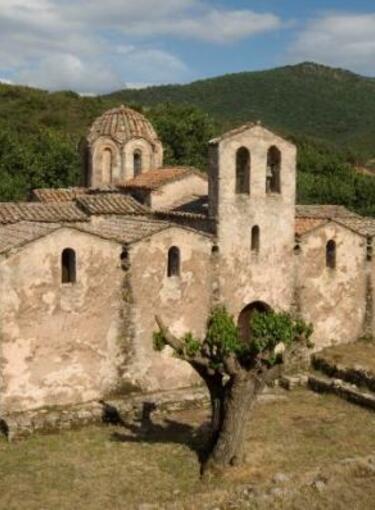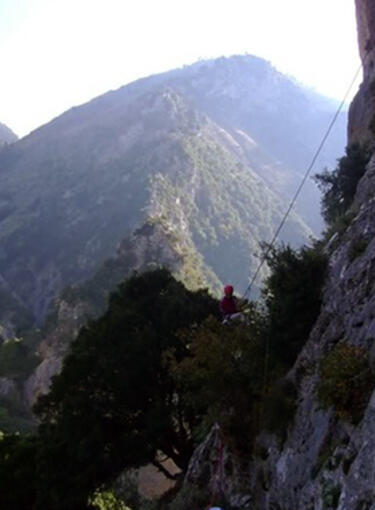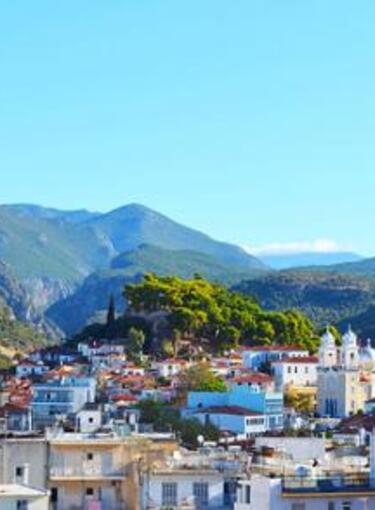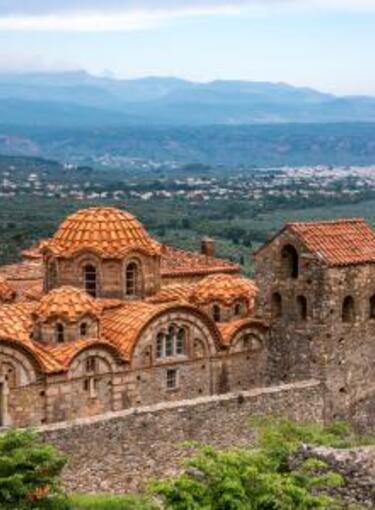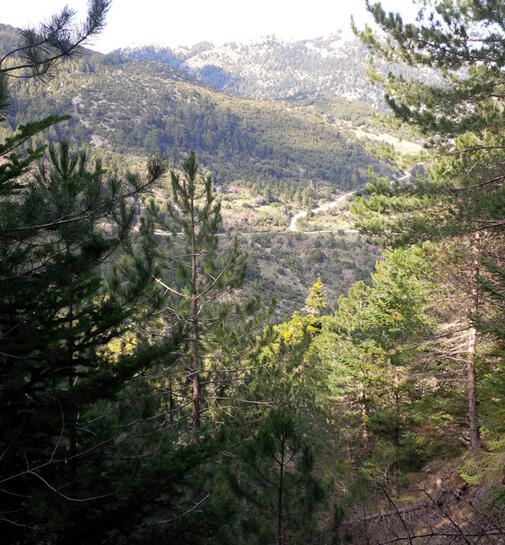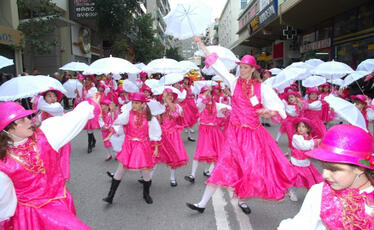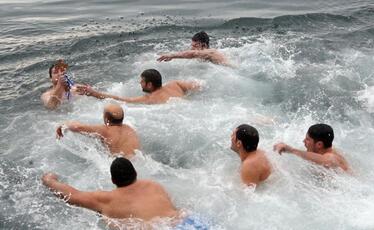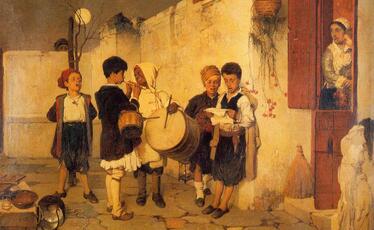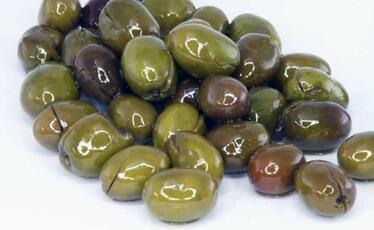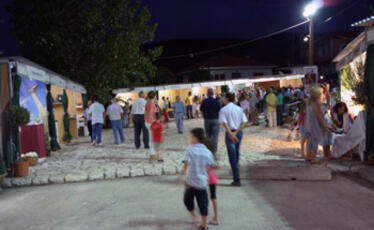At the centre of Kalamata, near the church of Ypapanti, is the church of Agios Konstantinos and Agia Eleni, which is the present day catholicon of the Monastery Kalograion. It is one of the characteristic monuments of the Byzantine city, which during its size – its area is approximately 120m2 – it is assumed that it was its most important church, perhaps even its metropolis.
It was constructed initially in the 12th century and from this first building only some parts survive, at the arch of the altar area and the side walls. During the period of the 2nd Venice Occupation (1685-1715) there were extended alterations and several western elements were added, like the Venetian openings that can be seen on the northern wall, which is largely reconstructed, but it cannot be very different from its initial form. The church was destroyed by the Turco-Albanians in 1770 during the Orlov Revolt and was reconstructed in 1796 with the foundation of the women’s monastery by the priest-monk Gerasimos Papadopoulos, from Kalamata. It was torched in 1826 by Ibrahim and was repaired in the middle of the 19th century. Until 1842 it operated as a parish church and then became part of the Monastery Kalograion.
Nowadays the church is one-aisled, wooden-roofed basilica, but there are a lot of stages in its architectural development. The walls of the initial church stand out because they were built in the well-known Byzantine cloisonné system and have the characteristic ceramic decoration. As a matter of fact, at the conch of the altar area, on the exterior side, we can see a series of crosses inside stone frameworks. The way of masonry presents a lot of common elements with the modern church of Agioi Apostoloi and researchers do not rule out the possibility that both churches were constructed by the same people.
At the interior of the church parts from the wall paintings from the Byzantine period still survive, while the altar is supported on an ancient capital.
The church celebrates on the 21st of May.


